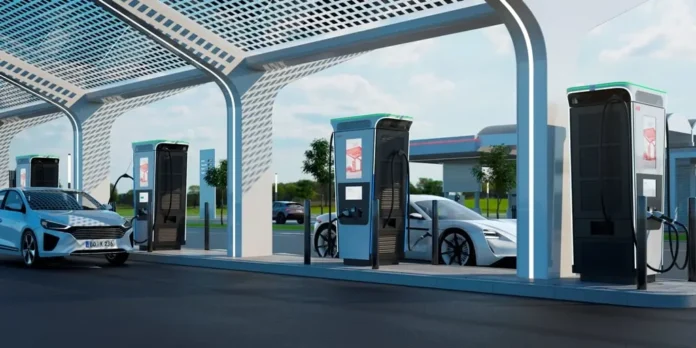Electric cars commonly referred to as electric vehicles (EVs); have significantly impacted the automotive industry as a viable replacement for traditional gas-powered automobiles.
Electric vehicles; which are powered by electricity stored in sophisticated battery systems, have many advantages over vehicles powered by fossil fuels. Although, you need to keep a note of the EV Charging Stations franchise India. This article examines the many advantages of electric vehicles, emphasizing their potential to revolutionize transportation and support a sustainable future.
Environmental Impact
When compared to gasoline-powered vehicles, electric cars leave a far smaller carbon impact. They have zero tailpipe emissions, which lowers air pollution and greenhouse gas emissions. Societies can lessen the negative effects of climate change, enhance air quality, and safeguard public health by switching to electric vehicles.
Energy Efficiency
Compared to vehicles powered by internal combustion engines (ICE); electric automobiles use significantly lesser energy. Electric automobiles may use more than 77% of the electrical energy from the grid to drive the wheels, compared to conventional vehicles that typically only use 12 to 30% of the energy stored in fuel to create motion. Reduced energy usage and cheaper operating expenses for drivers are the outcomes of this improved efficiency.
Synergy with Renewable Energy
The usage of renewable energy sources is increasing; which is congruent with the adoption of electric vehicles. A cleaner yet more sustainable transportation system can be developed by combining electric vehicles with renewable energy sources like solar and wind power. To boost grid stability & resilience, electric vehicles can serve as mobile energy storage; allowing surplus electricity generated by renewable sources to be efficiently stored and used.
Reduced Reliance on Fossil Fuels
Since fossil fuels are limited and are linked to geopolitical unrest and price instability, electric cars help to reduce our reliance on them. Countries can diversify their energy sources and decrease sensitivity to changes in oil prices by switching to electric transportation, assuring a more stable and secure energy future.
Noise Pollution
Electric vehicles are quieter to drive than traditional cars, which helps to lessen noise pollution in cities. This improves inhabitants’ quality of life, especially in highly populated places where road noise can be a major problem. Additionally, safer and more enjoyable driving experiences can be improved by quieter roads.
Savings
Even though electric cars have a higher initial price tag than traditional vehicles; the overall ownership costs over the lifespan of the vehicle are significantly lower. Electric vehicles require less maintenance and repair due to their simpler mechanical design with fewer moving parts. Furthermore, electricity costs tend to be more stable and predictable than fluctuating gasoline prices, resulting in lower fuel expenses for EV owners.
Conclusion
To sum up; electric vehicles represent a disruptive force in the transportation industry and provide a wealth of advantages. They support energy independence, improve energy efficiency, lessen air & noise pollution, and combat climate change. Electric vehicles are paving the way for a more sustainable future with continual improvements and rising usage. Before buying an Electric Vehicle, consider the best EV charging franchise India.







































